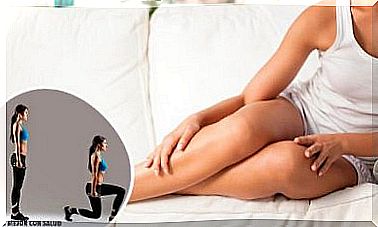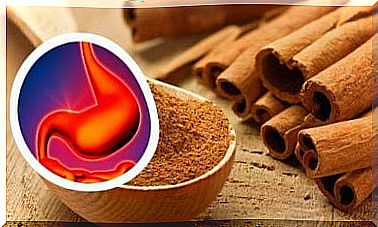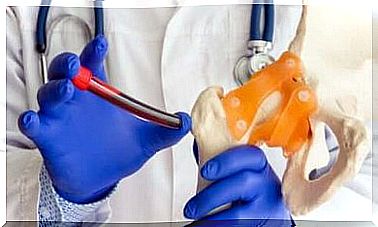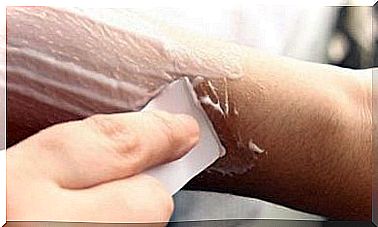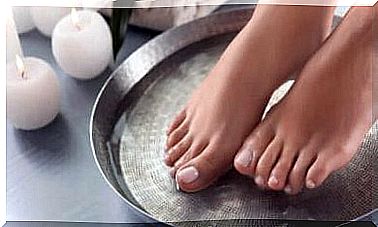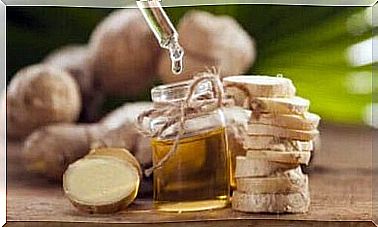Overactive Bladder Syndrome: Avoid These Products
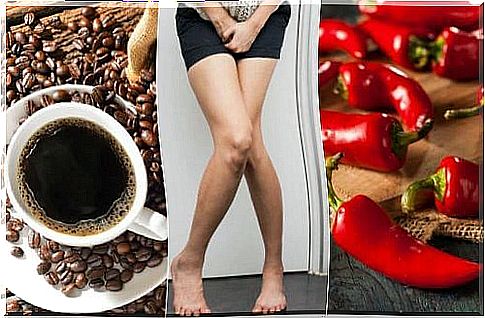
Overactive bladder syndrome is a disease that manifests itself primarily by an urgent and sudden need to urinate. It is a physiological problem mainly caused by the involuntary contraction of the muscles surrounding the organ. This, in turn, can trigger an uncontrolled leakage of urine (also known as situational urinary incontinence).
For all those who suffer from overactive bladder , this can be quite an embarrassing nuisance. Not only because it is a phenomenon that is difficult to control. This is mainly because such a sudden leakage of urine is a very embarrassing phenomenon that can significantly limit your social and professional life.
The most disturbing thing is that many people ignore this problem. At the same time, they do not undergo proper treatment, and as a result, they may develop severe cases of chronic urinary incontinence and other diseases.
That is why it is so important to find out what countermeasures should be taken in this case. They will then allow you to control overactive bladder syndrome. It is also worth remembering what foods can have harmful effects when they are part of the standard diet of a person suffering from this embarrassing ailment.
In our today’s article, we will discuss some of the main causes of this disease. We will also present you 5 food products that it is better to avoid in this case. This way, you will avoid the potential worsening of the symptoms of the disease, as well as other complications associated with it.
What are the main causes of overactive bladder syndrome?
Overactive bladder syndrome develops when the muscles around this organ begin to contract involuntarily. This is especially noticeable when contractions occur despite the fact that the bladder does not contain much urine, so there is normally no need to pass it.
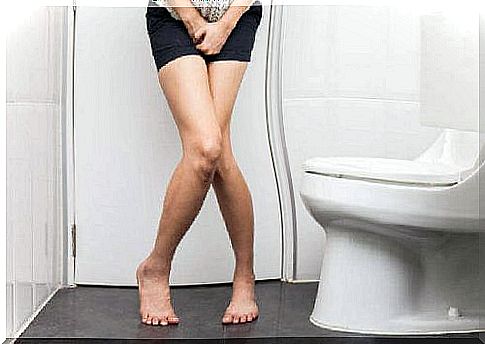
Factors increasing the risk of developing overactive bladder syndrome
The causes of loss of bladder control in many cases are unknown. However, there are various triggers of this ailment that are clearly related to its development. These are among others:
- Drinking excessive amounts of fluids
- Problems of a neurological nature
- Taking strong diuretics
- Urinary tract infections
- Diabetes
- Enlarged prostate
- Constipation
- Cognitive decline due to aging
- Consuming excessive amounts of caffeine or alcohol
- Anomalies in the bladder, such as lumps or stones
- Incomplete bladder emptying from a previous visit to the toilet
- Discopathy or its beginnings
- Stress
Typical symptoms of overactive bladder syndrome
Overactive bladder syndrome is a disease that causes a number of changes in urination habits. Its main symptoms are:
- Urgent and sudden need to urinate
- Involuntary leakage of urine
- Urinating more often than usual. Usually the limit is eight or more times a day
- Having to pass urine at night (nocturia)
Foods to be avoided with an overactive bladder
It is therefore very important to limit the amount of these foods you consume, at least during treatment. The reason is very simple – eating them can negatively affect the healing process.
1. Tomato
It cannot be denied that tomato is one of the most nutritious foods out there. And for this it is widely recommended due to its valuable properties for our health. However, for patients struggling with the health problem described here, this is not a recommended food product.
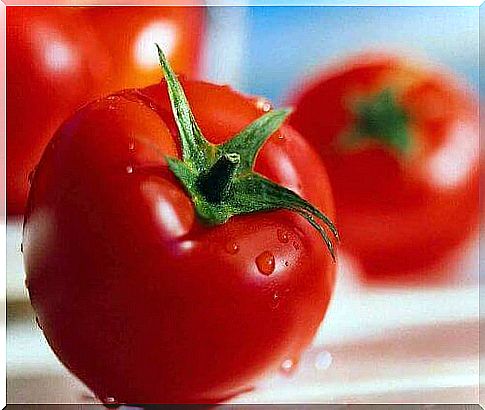
This fruit contains acids that are irritating to the urinary tract and bladder tissues. Its diuretic effect increases the renal production of urine, which may make it more susceptible to uncontrolled urine leakage.
On the other hand, the situation may even worsen after cooking the tomato as its acidity worsens after the heat treatment process. Moreover, some types of tomatoes emit higher amounts of sugar in this case.
2. Coffee
Coffee and caffeinated products in general can have a detrimental effect on patients who have difficulty controlling their bladder.
This stimulant may cause increased brain and nervous activity (hyperactivity). Even when consumed in small amounts.
Its effects disrupt the physiological processes that control bladder functions. This means that you urinate more frequently, even when your bladder doesn’t have much fluid to pass out.
3. Spicy spices
Although spicy foods offer many health benefits, it is better to avoid such food if you suffer from overactive bladder. This is because it can irritate the tissues inside the bladder and cause the urine to flow out of control.
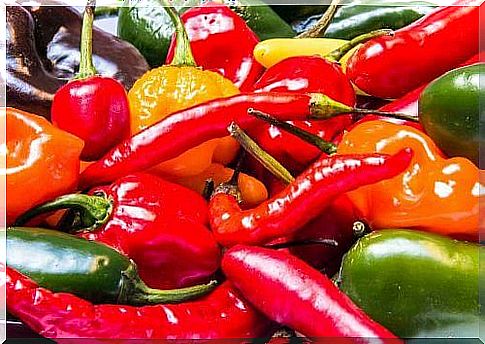
Spicy foods also trigger an inflammatory response that can make your bladder work harder.
The ideal solution is to exclude cayenne pepper, chili pepper, turmeric, and other hot spices from your daily diet.
4. Citrus juices
Yes, we know very well that citrus fruit juices are very tasty and that they are also an important source of vitamin C. However, due to the high concentration of various types of acids, patients suffering from overactive bladder syndrome should avoid them.
The composition of citrus fruit juice can irritate the bladder, increasing the frequency and strength of contractions that make you feel the need to go to the toilet immediately.
Additionally, these juices have a slight diuretic effect, which can give you an unwanted impulse to expel the contents of your bladder, thus causing you to run out of urine uncontrollably.
5. Sweetened products
All types of sweet foods, including foods that contain a lot of artificial sweeteners, have a detrimental effect on your body when you consume them in excessive amounts.

Refined sugar irritates the mucous tissue in your body and upsets the balance of inflammation. This results in a lack of bladder control and pain or burning sensation when urinating.
So remember to avoid cakes, sweets and other sweet foods if you have overactive bladder syndrome.
If you have symptoms of overactive bladder syndrome, consult your doctor first. While there are factors that cannot be controlled, there are many treatments and medications available that can help reduce the embarrassing symptoms of this condition so that it does not significantly affect your quality of life.

